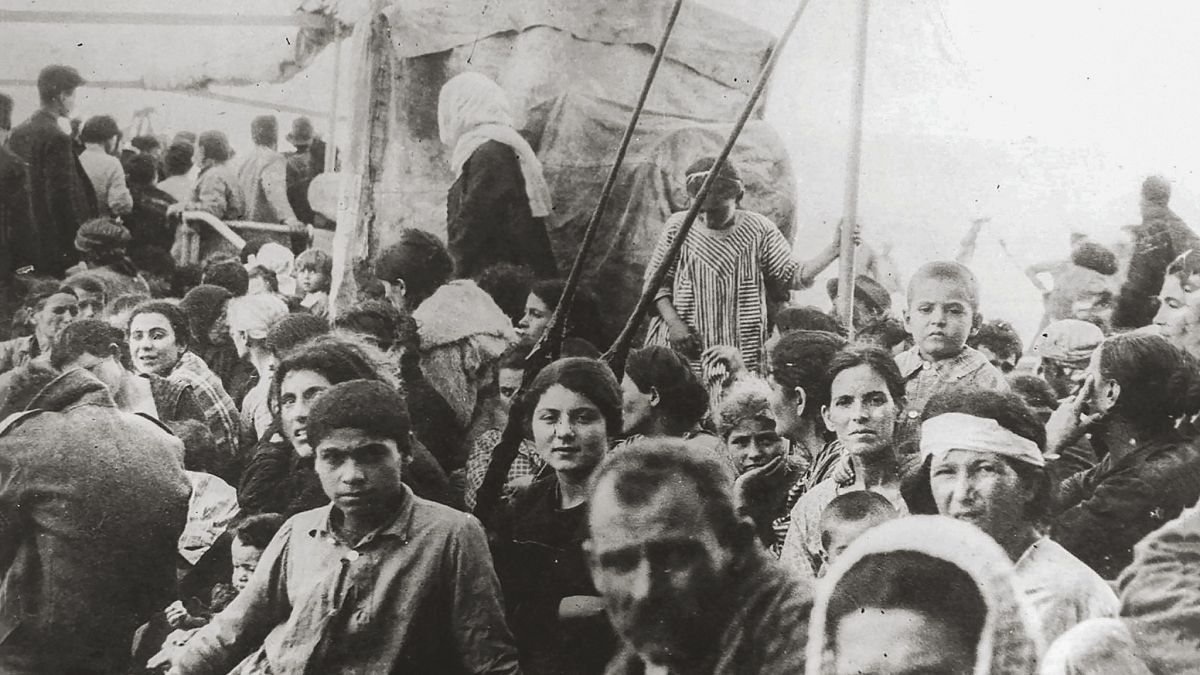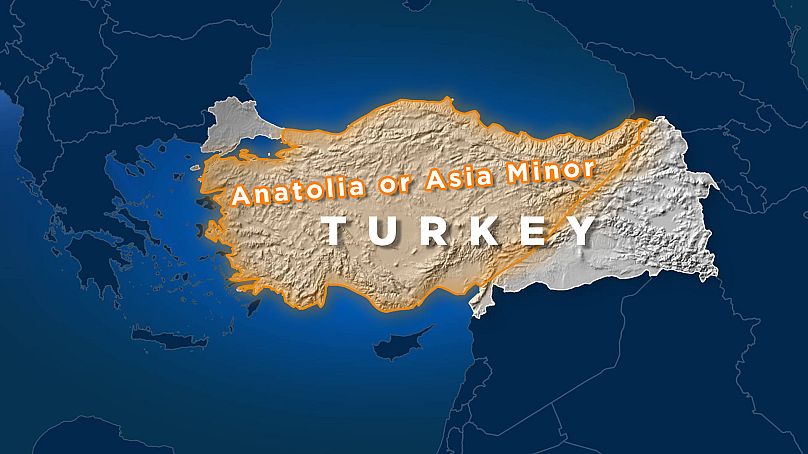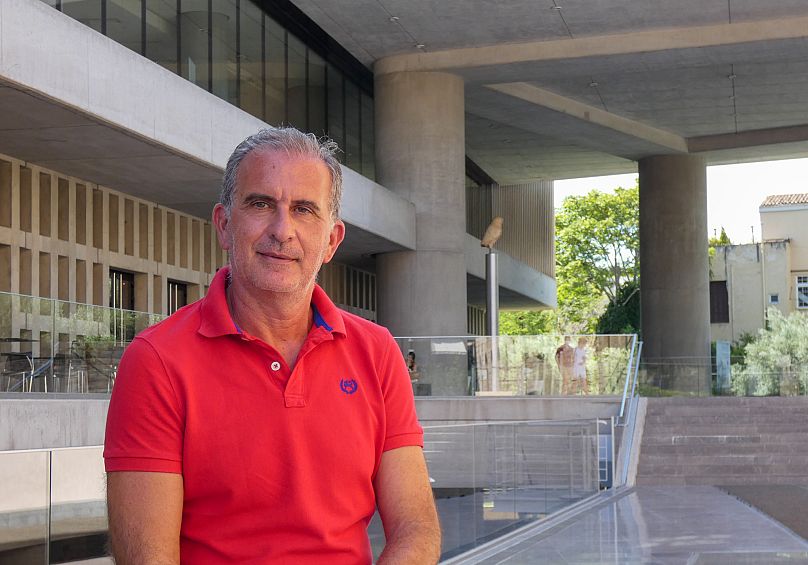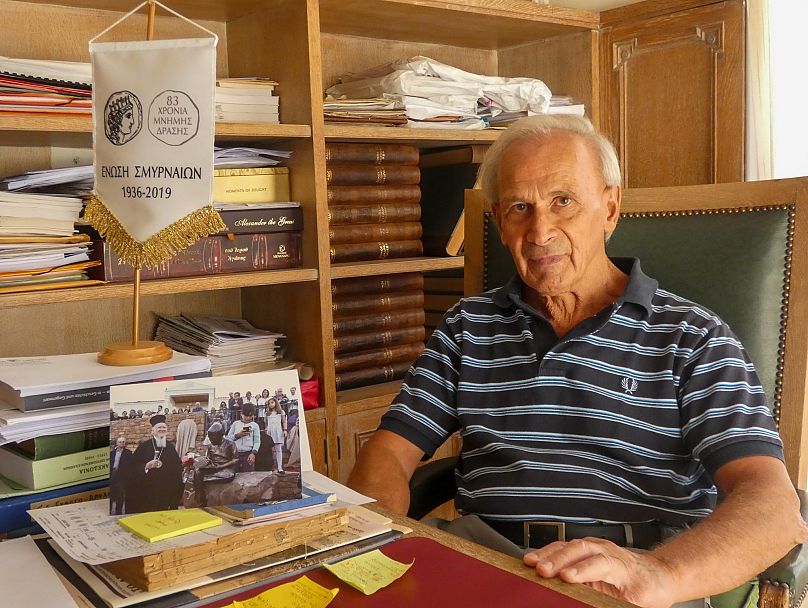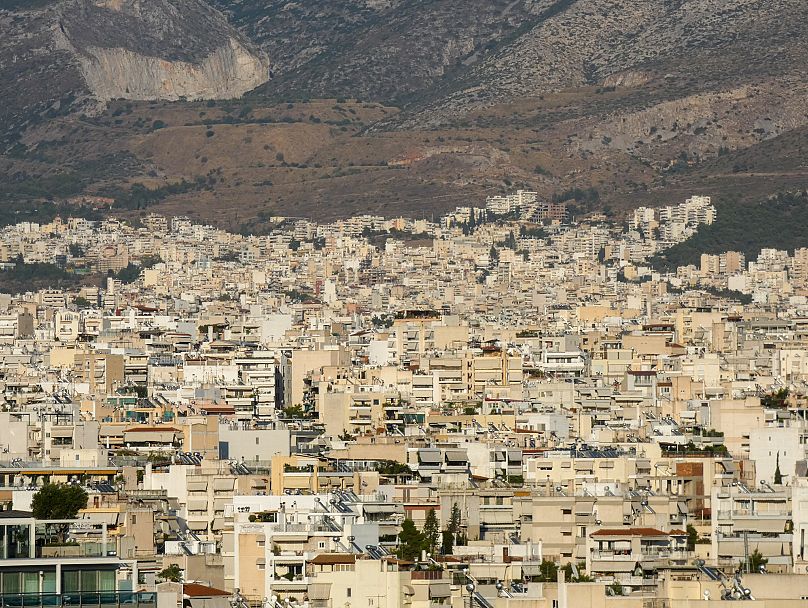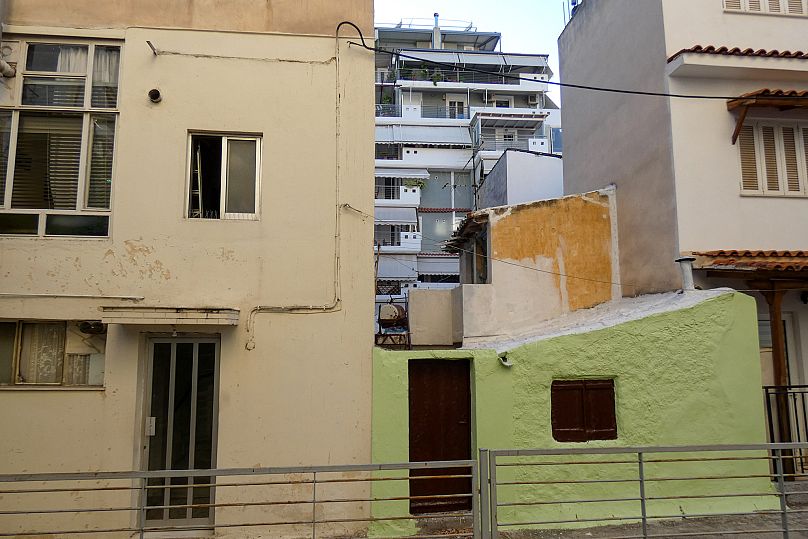The descendants of Greek refugees who fled Turkey nearly a century ago tell Euronews their stories
Greece was the entry point for hundreds of thousands of migrants at the peak of Europe's refugee crisis five years ago.
And, nearly 100 years ago, it was at the centre of another large influx.
At the end of the Greco-Turkish War in 1922, Greece absorbed an estimated 1.2 million Anatolian Greeks who had been forced to leave Turkey.
They constructed an identity based on their origins, which is handed down from generation to generation still to this day.
Although almost 100 years have passed since what Greeks call "the great catastrophe", many descendants of the Greeks who fled from Asia Minor — another name for Anatolia — continue to gather in associations, with one established in almost every neighbourhood in Athens.
The organisations put on events, as well as dance, cooking and Turkish language courses.
Recent frictions between Greece and Turkey in eastern Mediterranean waters evoke painful memories for many Anatolian Greeks.
"History is not a screenplay where you can easily identify good and bad characters,” Giannis Koutoulias, president of the Association of Asia Minor Culture of Egaleo and Nea Kydonies, told Euronews.
"Of course, listening to some of Erdogan's quotes is painful, like when (at a 2019 conference in Izmir, a city on Turkey's Aegean coast) he said: 'I will throw the Greeks into the sea', quoting a verse from a Turkish song," he added.
Koutoulias, an archaeologist at Athens' famous Acropolis Museum, defines himself as a "Mikroasiatis" — a term used for the Greeks that lived in Asia Minor.
His great-grandfather escaped Asia Minor before 1922 when he sensed that the situation there might escalate.
“My family told me that for the first few years, every afternoon, my great-grandfather closed himself off and went silent. He thought of when, at that moment of the day, he would sit at the tables in the port to comment on the day with his friends, whom he has never seen again," recalls the archaeologist.
"He used to think about the time of day, while he was in Asia Minor, when he would sit at a small table in the harbour and chat with his friends, whom he never saw again," the archaeologist recalls.
Koutoulias’ grandfather was one of the 1.2 million Greeks who were forced to leave Turkey — where their ancestors had lived for generations — and emigrate to Greece in 1922.
The Treaty of Lausanne meant Greece and Turkey agreed to expel any citizens the countries considered no longer welcome.
Greece, which at that time had a population of roughly five million, took back more than one million "Turkish seeds", as they were sometimes referred to in a derogatory way.
The newly founded Republic of Turkey did the same with 356,000 Turks who were living in Greece.
'We must avoid trivialising the history of Greek identity'
"For years we have been collecting the testimonies of refugees and their descendants and we have organised trips to Asia Minor,” Koutoulias said of his association.
“During one of these trips, a woman visiting her grandfather's house, which had remained intact, was handed the key by the current Turkish owner," said Koutoulias.
Georgios Archontakis, president of the Union of Smyrneans, told Euronews “we must avoid trivialising the history of Greek identity, just because we think it would make it easier to deal with our present".
"The Greeks who arrived from Asia Minor were educated and wealthy people," he said.
In Izmir before the expulsion, there were already two educational institutions for women, which had not yet been opened in Greece," Archontakis added.
"With their arrival, the Mikroasiates revolutionised Greek culture, including food, music and trade,” he said. "All of this cannot be forgotten".
'She never stopped talking about the land she had been forced to leave.'
Archontakis' parents told him about the difficulties their exile created: "My father fled from Izmir at the age of nine, getting on a fishing boat in the port of Izmir with his mother, while the city was burning. His father and brothers did not make it and were killed,” he told Euronews.
Archontakis' mother, on the other hand, fled from Izmir at just nine months old.
"I grew up in the district of Nikaia, built by refugees who had lost everything when they arrived in Athens.
"My teacher was a woman who had escaped from Asia Minor: she always worked as a teacher in the neighbourhood, even when the school had not yet been built, she used to call the students by ringing the bell.
"For as long as she worked, she never stopped talking about the land she had been forced to leave to her students," Archontakis said.
'The history of the refugees is our history.'
The refugees who arrived from Asia Minor have greatly impacted not just the culture but also the geography of Athens.
Many district names reveal a link to Asia Minor, such as Nea Smyrni, which translates to New Smyrna (Smyrna is today's Izmir in Turkey) — today Nea Smyrni is a residential district with large square and statues dedicated to the "great catastrophe".
Further north of Nea Smyrni is Kaisariani, another suburb built entirely by refugees who came from Asia Minor.
The municipality's website shows a photograph of the tents pitched by Greek refugees in the district when it had not yet been built.
"The history of the refugees is our history, but certainly today, Kaisariani cannot be defined as the Asia Minor refugees' suburb," mayor Christos Voskopoulos told Euronews.
"Kaisariani also played an important role during the resistance to the German occupation: today we are aware of our history, but we can't forget that we have to face the difficulties of daily administration to deal with."
According to Giorgos Strato, vice-president at the Centre for Asia Minor Culture in Kaisariani: "The people who built this neighbourhood will never forget their story until the end of their days: they survived by doing what they had to do, becoming construction workers, harbour workers, fishmongers.
"The struggle to survive and solidarity are the glue that holds this community together."
For Strato “what happened almost 100 years ago should remind us how close Turkey and Greece have historically been with each other."
"The Greeks have lived with the Turks for hundreds of years: it’s a positive history, made not only of clashes but also of coexistence and mutual enrichment," he added.
Mimis Christofilakis, a historical researcher in Keisariani, told Euronews: "Our neighbourhood has kept the traditions of refugees from Asia Minor alive thanks to patriotism, but never in an anti-Turkish way."
Walking through the streets of Kaisariani, the neighbourhood's Asian roots are still evident, from the shops named "Bosporus" (like the waterway located in northwestern Turkey) to the layout of the streets reminiscent of those in Asia Minor, with their small houses that stand two meters high set between buildings of constructed more recently.
These houses were built by refugees, and are not only recognisable for their size but also for their internal courtyards — a classic of Asia Minor culture.
The first thing refugees did when they arrived in Athens was build houses similar to those they were forced to leave.


